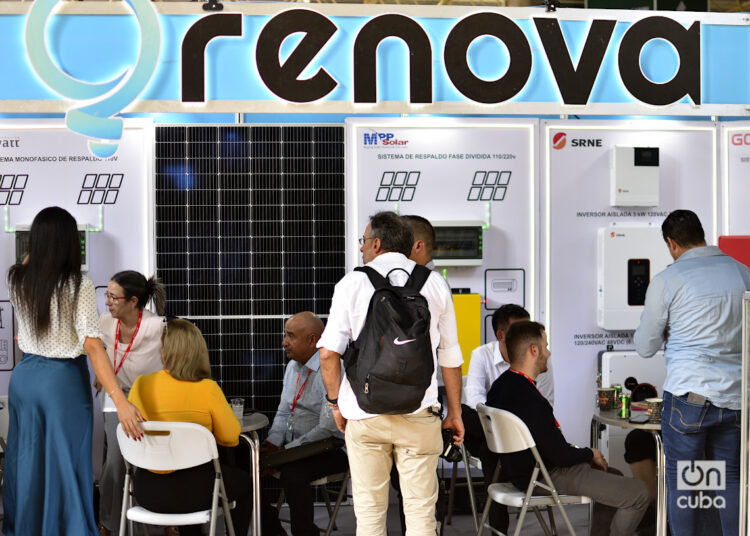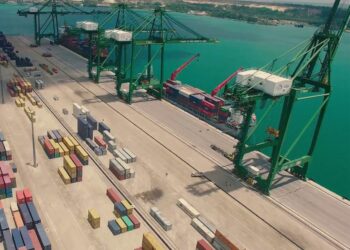It is not difficult to hear about Renova. You only have to look at the Plaza de los Trabajadores, in the heart of the city of Camagüey, on any given blackout night, to find out about the existence of this leading enterprise in photovoltaic energy.
“When the city is unlit, there is an island of light,” says with childish haughtiness Rusbel Álvarez Figueredo, a specialist in institutional communication and logistics at Renova.
Installed with the collaboration of the local Office of the Historian, the photovoltaic system provides lighting to a colonial area where history and tourism meet in Santa María del Puerto del Príncipe.
The itinerant township was founded in 1514 by the sea, in Nuevitas, hence its name, which later remained as a testimony to its marine origin given the Mediterranean nature of its final settlement, in the navel of the current province.
Dominated in its center by a large century-old ceiba tree and around it the Church of Nuestra Señora de la Merced, the square has no competitors as it is illuminated and allows, besieged by masses of shadows, the contemplation, sometimes spectral, of old buildings, restaurants, cafes and shops in the midst of power outages that can last more than half the day.
Origin
Founded on November 4, 2021, Renova is the brainchild of Cuban-American businessman Roberto Jesús Medina Torres. Originally from Camagüey, he was murdered in his homeland in February 2023, being one of the pioneers of the diaspora to invest in the island after the government’s invitation.
“With Renova, he intended to promote the use of renewable energy in Cuba in the wake of the economic crisis and the great difficulties with fossil fuels,” recalls Alvarez in an interview with OnCuba on the second and last day of the ill-fated 40th International Havana Trade Fair.
Medina Torres had detected “a niche of opportunity in renewable energy for the solution of energy problems, not only for the business sector but for the private and residential sector,” he adds.
The expansion of photovoltaic solutions is Renova’s dominant line of business, which coincides, in turn, with the main corporate purpose of the enterprise, which has a staff of 34 employees.
Its fundamental purpose is “to support technological progress through a wide range of services, including the installation of computer networks and lighting systems, maintenance, diagnosis, projects, consulting, technical assistance, after-sales, warranty, and repair” of the equipment used for these purposes.
The primary capital to found Renova came from the pocket of its founder Medina Torres. The initiative also had bank loans from Cuba.
The Cuban-American businessman’s dream was for Renova to become the leading enterprise in the production of renewable energy in Cuba “based on the human capital that he had already planned to create and with the help of different suppliers and partners,” says the communicator of the Camagüey MSME, which also produces green hydrogen.
It is a clean, sustainable fuel with a zero-pollution index that can be key not only as an energy vector but also as raw material.
“He had already planned this and, unfortunately, he passed away and was unable to see his project materialize for the most part. We are still a young enterprise that already shows significant results with more than 700 contracts signed with state and private entities and the residential sector,” Álvarez says.
Renova provides the service with the entire cycle included. From the installation plans, the equipment, the know-how and the startup of the system in question.
“There are clients who provide the equipment because they buy it abroad and we only provide the installation service. But when the client needs it, we make and provide the components for the entire process,” he specifies.
Despite the cost of current solar technology, despite its cheapening in recent years, Renova faces the rigors of the domestic economic crisis and inflation that so far only slows its growth and decreases drop by drop, according to official figures.
“The price of the dollar has risen quite a bit and the equipment is bought abroad since Cuba still does not produce anything in this regard. We are trying to reach more sectors, but we are not advancing at the pace we want,” Álvarez admits.
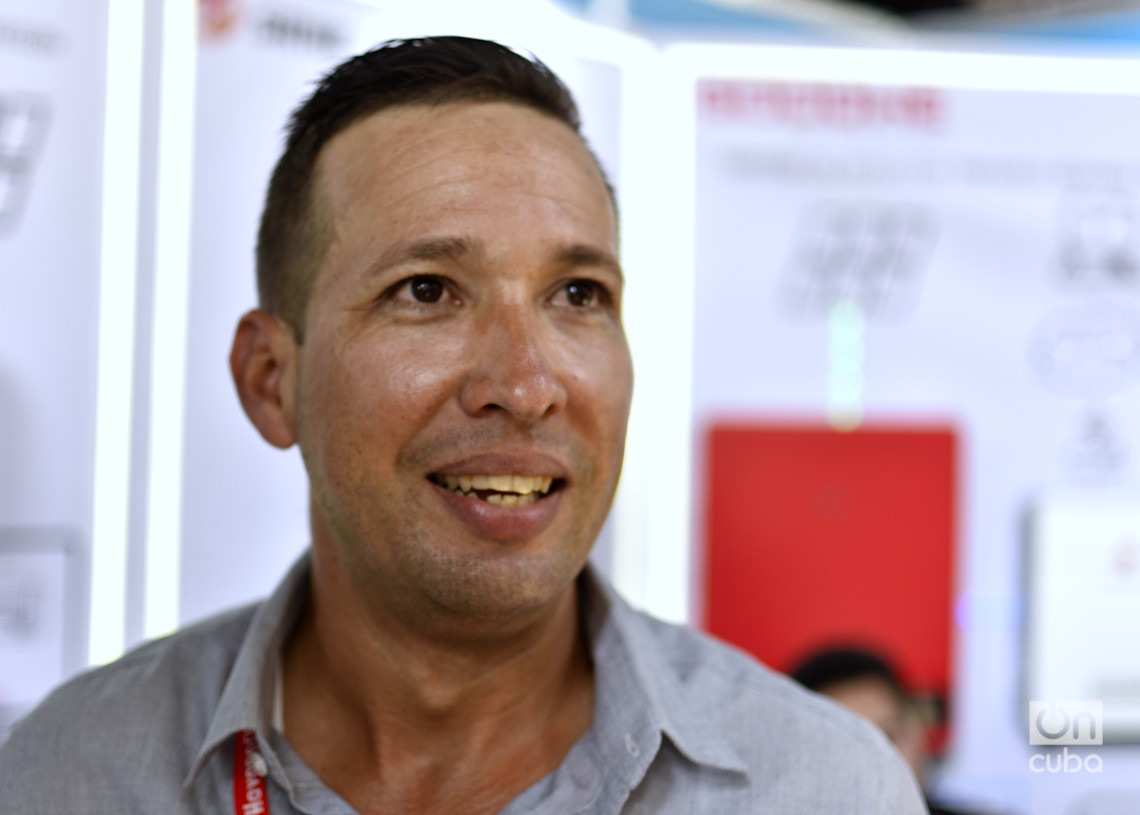
Official exchange market, a troubling absence
You have to clash with the informal currency market, is that so?
We do not escape the problems that the rest of the private enterprises on the island have. We have to look for all possible ways to acquire financing in order to buy the equipment.
Given its great interest in promoting the green economy, does the government have tax incentives for you?
Yes, there are tax incentives for the import of this type of equipment. That is contemplated within the government’s guidelines and policies and in fact, it is one of the advantages we are having.
And do you have access to the official exchange market?
One of the needs we have is precisely that. So far, it has been impossible. As long as we have access to the currency valued by the State, we can perhaps reduce by half the costs of the products we are now offering.
Does the demand for your services come more from the public sector than from the private sector or the other way around?
It is quite equal. And yes, there is a growth in demand in both sectors due to the energy crisis.
In the short term, how would you assess the prosperity of your business?
In the short term, in addition to the obstacles we must overcome, I see it in a positive light. I see a notable growth of our enterprise, although not at the pace we would like.
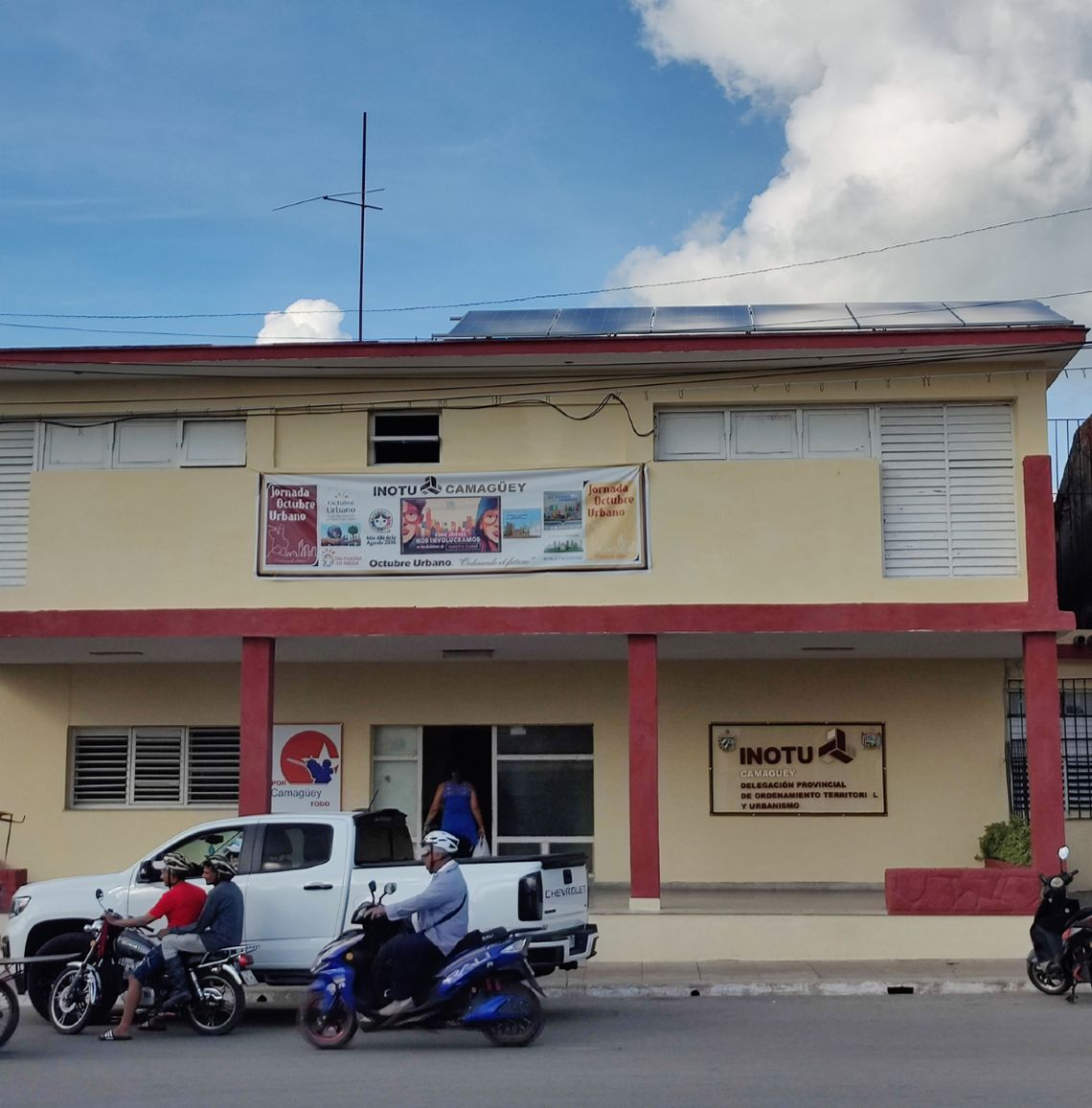
We have to import
One of the weaknesses that Renova faces is not being able to count on an internal market for technologies and inputs.
Cuba does not produce anything, so far, of what the MSME needs for its sustainability and development, except for human capital, which is first class.
For now, Renova is seeking to articulate itself with similar enterprises in the Caribbean and Latin America. At present, they have found markets in Guyana and African nations interested in their services.
From which markets do you import? Do you look for the cheapest ones? Do you have access to cutting-edge technology or do you use outdated technologies?
We are trying to acquire the best possible technology, even when the costs are not the lowest and most accessible because this has to do with the quality of our service. We want our clients to be satisfied with our work and therefore we want to ensure that the technology we have supports or resolves their demands and problems. We are not looking for the cheapest, rather for what contains the highest quality.
And how does the profit regimen behave?
Up to now, it is allowed us to replenish ourselves, to obtain dividends, but following the established parameters. We are not trying to inflate prices to make more profits, but rather, based on what is available in our country, we seek financing to be able to move forward.
Are there differentiated prices for one sector or another?
We try not to have prices that high for any of the sectors, whether state, private or residential. We do not differentiate prices, we only aim for them to allow us to have dividend growth and for the enterprise to move forward without having red numbers.
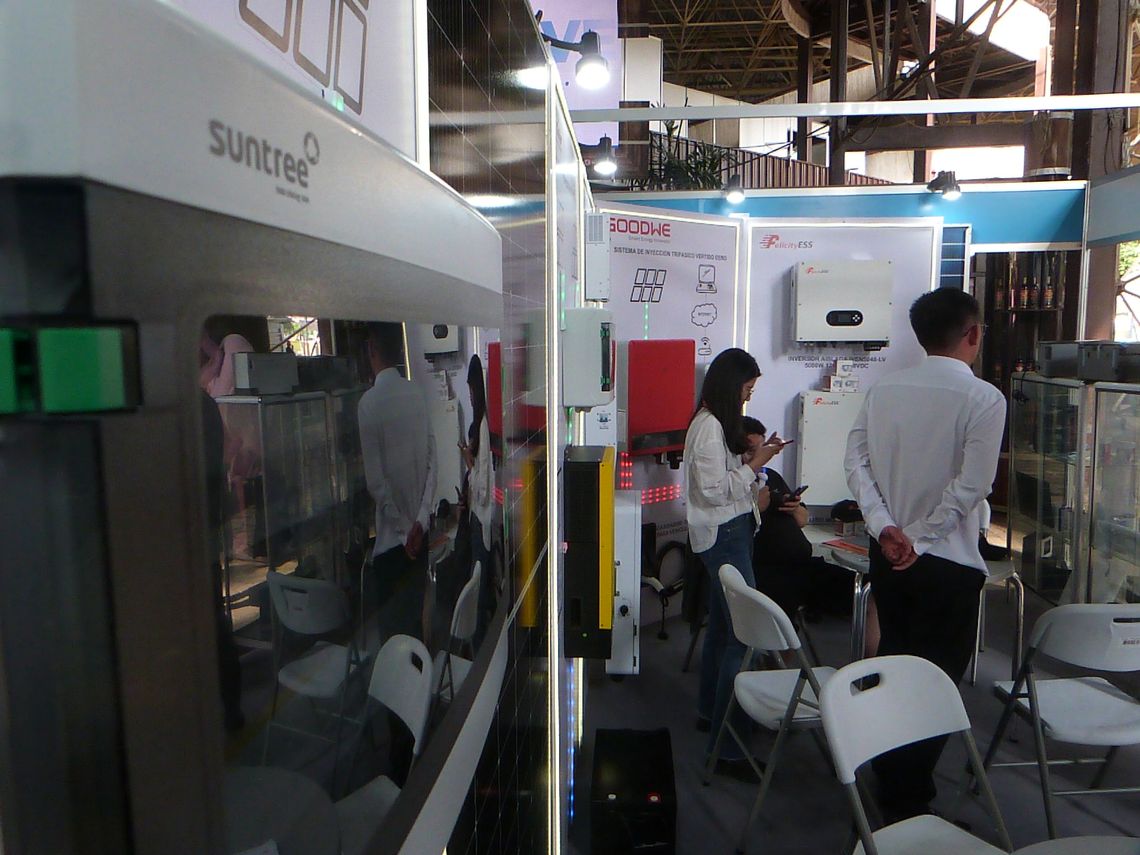
Pending subjects
One of Renova’s pending subjects is to activate a fund for self-sufficiency of parts and technologies produced by its own workshops. For now, it is a latent dream, and “another of the lines that our founder thought of,” Álvarez says.
Renova’s growth policies act on three levels: municipal, provincial and national, and its executives do not fear that the intended deployment of renewable energies by the island’s authorities will corner or suffocate them through unfair competition.
“If the state sector also grows in the renewable energy sector, it would also be beneficial for us,” the communicator estimates.
Another of Renova’s aspirations is to obtain external financing through foundations or international funds that defend environmental initiatives, while they propose to increase their relationships with startups in the region in the profile of photovoltaic energies.
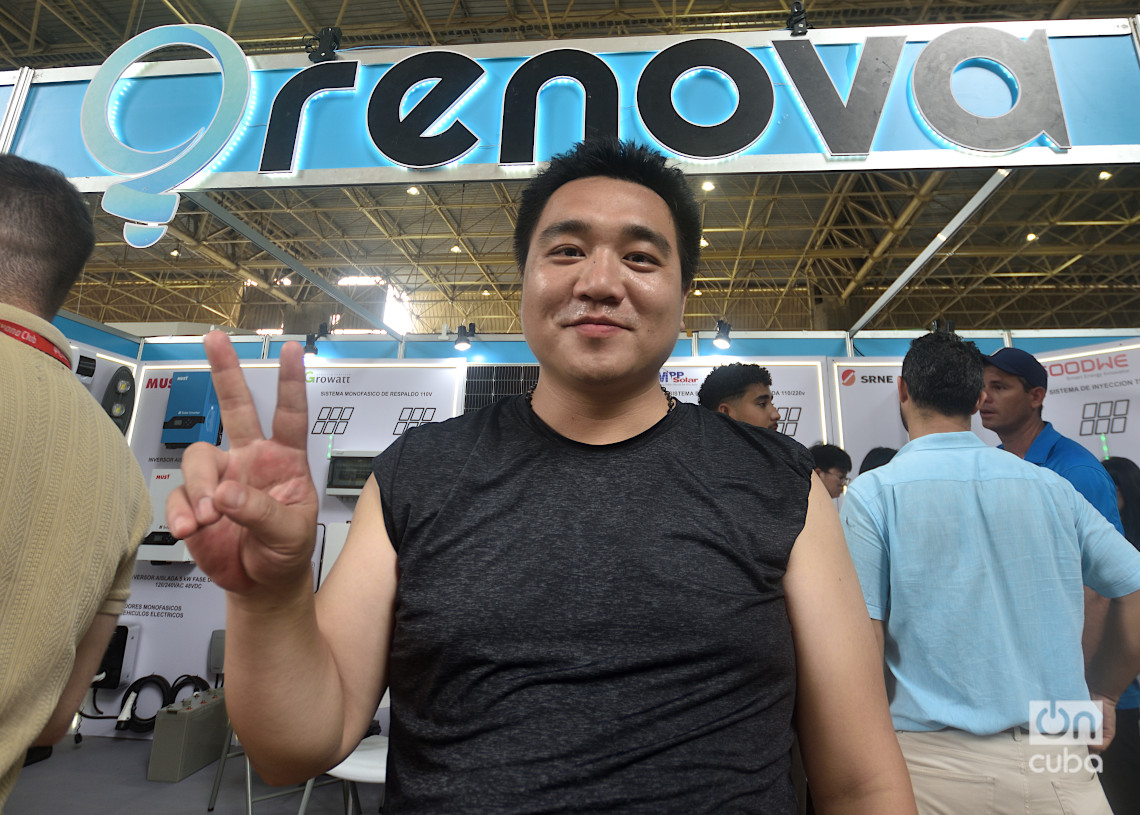
China, the nurturing mother
For now, China, a world power in renewable alternatives, is the market that supplies all of Renova’s technological needs.
To verify this, it was enough to quickly review the panels at the Camagüey MSME’s stand at FIHAV 2024. Elfo, Must, Growatt, Goodwe, FelicitityEss, Suntree; they are all Chinese firms.
One of Renova’s Chinese suppliers calls himself Kevin. He is a friendly businessman who promotes energy storage systems, lithium batteries, hybrid inverters (which allow the use of the conventional electrical grid and the use of batteries), and solar lamps with an experience that is close to two decades old.
“Cuba has a brilliant future if it uses photovoltaic energy and today the future is with Renova,” said Kevin in broken Spanish which sounded like a last-minute slogan.

